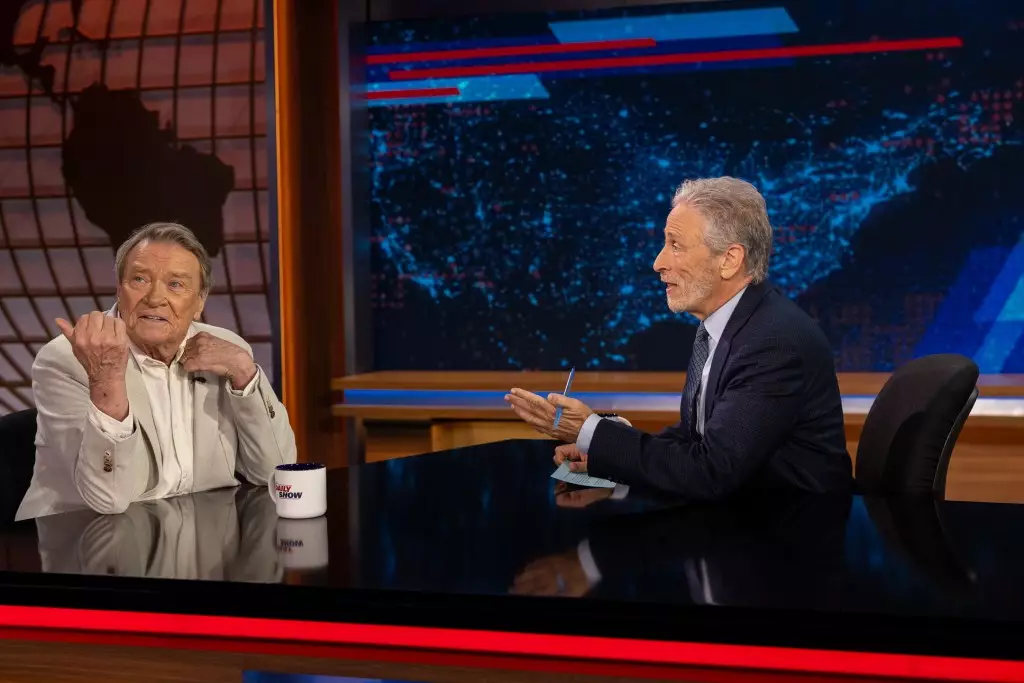When major corporations resolve disputes with high-profile figures through hefty financial payouts, it often raises more questions than it answers. The recent $16 million settlement between Paramount Global—owner of Comedy Central and the flagship network behind *The Daily Show*—and Donald Trump is a prime example. While on the surface, it appears as a legal resolution, a closer examination reveals a complex web of strategic interests, power plays, and potential media manipulation. This settlement isn’t just about settling a lawsuit; it’s likely a calculated move tailored to serve corporate and political agendas, veiled behind the guise of legal propriety.
The decision to pay such a significant sum without a public fight signals a far more insidious underlying motive. Instead of defending journalistic integrity or upholding the ideals of free speech, Paramount appears to have chosen capitulation. Is this cultural capitulation a reflection of fear, corporate cowardice, or a desire to maintain influence over a turbulent political landscape? The answer, as many critics suspect, hinges on the nuanced power dynamics at play, where money often dictates narratives and silences dissent.
Media as a Pawn in Political and Corporate Chess Games
The critique voiced by Jon Stewart and veteran journalist Steve Kroft underscores an alarming trend: media entities, which traditionally serve as watchdogs, are increasingly entangled in political machinations. Kroft’s insights reveal a chilling reality—that the settlement might be less about accountability and more about strategic compliance to protect lucrative mergers and political alignments. The involvement of powerful figures like Larry Ellison and the interests of conglomerates such as Redstone’s Paramount point toward a broader pattern: media outlets are often used as pawns in economic and political chess games, sacrificing integrity to preserve their own financial interests.
This scenario hints at a disturbing erosion of journalistic independence. When media companies prefer settling rather than fighting, they implicitly endorse a culture of silence. This not only damages credibility but also threatens the very foundations of a free press—an essential pillar for democracy. The fear permeating the newsroom at 60 Minutes, as Kroft notes, suggests a climate where fear of job loss, reputation damage, or political retribution compels journalists to relinquish their quest for truth in favor of corporate survival.
The Underbelly of Corporate Mergers and Political Influence
Stewart’s interrogation of Paramount’s motives pushes the discussion beyond a simple lawsuit settlement to a conversation about the influence wielded by powerful elites. The alignment between corporate interests, political ambitions, and media strategies reveals a troubling pattern: major mergers often require appeasing political figures and their allies. The timing of this settlement coincides with ongoing corporate negotiations, suggesting that financial appeasement is being used as a tool to facilitate mergers and acquisitions.
Furthermore, Stewart’s mention of Donald Trump’s reputation for targeting enemies underscores a broader climate of intimidation and retaliation. Settlements like this arguably serve as a form of protection—quietly buying off potential grievances to neutralize threats to corporate or political dominance. Such tactics distort the independence of the press and shelter powerful figures from scrutiny. When media outlets accept these payments without resistance, they effectively endorse a landscape where information is commodified, and accountability is sacrificed at the altar of corporate expediency.
The Power of Media Criticism and Public Discourse
Jon Stewart’s blunt critique demonstrates the importance—and necessity—of vocal opposition in holding the powerful accountable. His pointed comments reveal a recognition that behind such settlements lie deeper questions about ethics, influence, and the future of journalistic independence. Analyzing these issues from a critical perspective is essential because it exposes the delicate balance between corporate interests and democratic principles.
The willingness of Stewart and Kroft to challenge the status quo reflects a growing awareness among journalists and commentators: that the integrity of public discourse depends on skepticism and relentless questioning of authority. When media figures openly call out perceived injustices—like paying off to avoid a fight—they chip away at blind acceptance and foster a more transparent conversation. Ultimately, the public must remain vigilant, questioning not just the headlines but the financial and political machinations that shape what gets reported—and what remains hidden.
The Stark Reality of Influence and the Future of Journalism
In an era plagued with misinformation, disinformation, and corporate-backed narratives, the true challenge lies in safeguarding journalistic independence from undue influence. The Paramount-Trump settlement exemplifies how financial settlements serve more as strategic shields than genuine resolutions. As media entities become entangled in corporate mergers, political leverage, and legal settlements, their role as the watchdog diminishes, making room for a more compliant, less confrontational press.
It is crucial for audiences to understand that behind seemingly routine legal disputes lie complex negotiations that often prioritize power consolidation over truth. Cultivating media literacy and demanding transparency in such negotiations isn’t just necessary—it’s revolutionary. Only through critical engagement and relentless scrutiny can society hope to counterbalance the influence of money and politics on the sacred principles of journalism and democracy.

